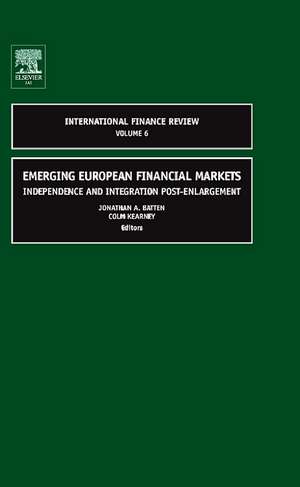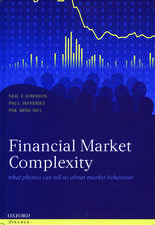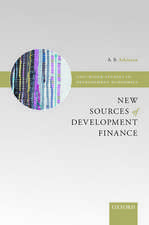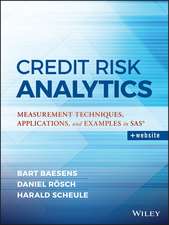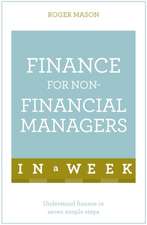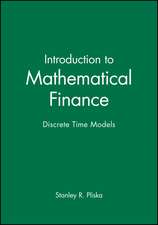Emerging European Financial Markets – Independence and Integration Post–Enlargement: International Finance Review
Autor Jonathan A. Batten, Colm Kearneyen Limba Engleză Hardback – 11 ian 2006
*Fills a substantial gap in this field
*Broad in scope
*Serves as an invaluable reference for those interested in European Financial Markets
Din seria International Finance Review
- 9%
 Preț: 938.91 lei
Preț: 938.91 lei - 9%
 Preț: 663.09 lei
Preț: 663.09 lei -
 Preț: 446.99 lei
Preț: 446.99 lei - 9%
 Preț: 627.02 lei
Preț: 627.02 lei - 23%
 Preț: 994.54 lei
Preț: 994.54 lei - 23%
 Preț: 921.42 lei
Preț: 921.42 lei - 23%
 Preț: 964.98 lei
Preț: 964.98 lei - 23%
 Preț: 1005.48 lei
Preț: 1005.48 lei - 23%
 Preț: 1050.92 lei
Preț: 1050.92 lei - 23%
 Preț: 1290.54 lei
Preț: 1290.54 lei - 23%
 Preț: 1118.54 lei
Preț: 1118.54 lei - 23%
 Preț: 1040.95 lei
Preț: 1040.95 lei - 23%
 Preț: 1149.67 lei
Preț: 1149.67 lei - 23%
 Preț: 995.64 lei
Preț: 995.64 lei - 23%
 Preț: 808.34 lei
Preț: 808.34 lei - 23%
 Preț: 745.04 lei
Preț: 745.04 lei
Preț: 1004.01 lei
Preț vechi: 1303.91 lei
-23% Nou
Puncte Express: 1506
Preț estimativ în valută:
192.18€ • 208.82$ • 161.53£
192.18€ • 208.82$ • 161.53£
Carte tipărită la comandă
Livrare economică 21 aprilie-05 mai
Preluare comenzi: 021 569.72.76
Specificații
ISBN-13: 9780762312641
ISBN-10: 0762312645
Pagini: 524
Dimensiuni: 155 x 234 x 711 mm
Greutate: 0.87 kg
Editura: Emerald Publishing
Seria International Finance Review
ISBN-10: 0762312645
Pagini: 524
Dimensiuni: 155 x 234 x 711 mm
Greutate: 0.87 kg
Editura: Emerald Publishing
Seria International Finance Review
Public țintă
Professionals, Academics and StudentsCuprins
1. Emerging European financial Markets: independence and integration post-enlargement (J.A. Batten, C. Kearney). 2. Fiscal policy surveillance in the enlarged European Union: procedural checks or simple arithmetic? (N. Groenendijk). 3. The impact of fiscal policy on risk premia in Central and Eastern European countries (D. Grigonyte). 4. Monetary policy operational frameworks compared: the euro area vs Non-Euro Area Countries (O.Mastroeni). 5. What Accession Countries need to know about the ECB: A comparative analysis of the independence of the ECB, the Bundesbank and the Reichsbank (R. A. Werner). 6. A comparative study of bank bfficiency in Central and Eastern Europe: The role of foreign ownership (P. Zajc). 7. A comparative study of banks’ balance sheets in the EU, New EU member states and European transition economies, 1995-2003 (I. Naaborg, B. Scholtens). 8. Governance by supranational interdependence: domestic policy change in the Turkish financial services industry (C. Bakir). 9. The development of financial derivatives markets in an expanded EU (J. Chi, M. Young). 10. Financial liberalization and business cycles: the experience of the New EU member states (L. Vinhas de Souza). 11. Common factors in eEuro-denominated emerging market bond spreads (P. McGuire, M.Schrijvers). 12. Romanian financial markets (M.Skully, K.Brown). 13. Conditional contemporaneous correlations among European emerging markets (S. Pynnonen). 14. The links between Central, East European and Western security markets (R.Kouwenberg, A. Mentink). 15. The lLinkages between emerging European and developed stock markets before and after the Russian crisis of 1997-1998 (B. Lucey, S.Voronkova). 16. Trading versus non-trading returns: evidence from Russia and the U.K (N. Wagner, U. Ben-Zion). 17. Foreign direct investment in emerging and transition European countries (S.Globerman, D. Shapiro, Y. Tang). 18. Foreign direct investment, stock ex change development and economic growth in Central and Eastern European (Y. Akbar, H.Elms, T. Dhakar). 19. The impact of EU enlargement on FDI flows (K. Kalot
